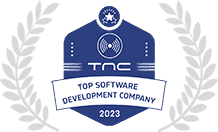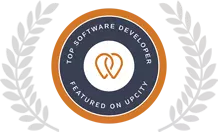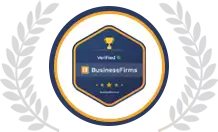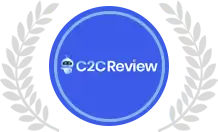App development is at the forefront of technological innovation, with an ever-growing need for versatile, scalable, and powerful programming languages. As we step into 2024, the app development landscape has evolved, and so has the demand for specific languages to create sophisticated and efficient applications. Whether you’re building mobile, web, or hybrid apps, choosing the right programming language is crucial for success.
In this article, we’ll explore the Top 10 Programming Languages for App Development in 2024, and examine why they’re the best choice for developers today.
1. JavaScript – The Language of the Web and Beyond
JavaScript continues to dominate the app development world. Known as the “language of the web,” JavaScript allows developers to create interactive, dynamic web applications. But in 2024, JavaScript is more than just a front-end language. It has expanded into backend development with frameworks like Node.js and can even be used in hybrid mobile app development through tools like React Native.
Why JavaScript is Ideal for App Development in 2024:
- Cross-platform Compatibility: Whether you’re building mobile, web, or desktop applications, JavaScript offers unparalleled flexibility.
- Robust Ecosystem: Frameworks like React Native (for mobile), Angular, and Vue.js (for web) make JavaScript a versatile tool for full-stack development.
- Community Support: JavaScript has an active developer community, which means continuous improvements, resources, and solutions for any challenge.
Entity Mention: React Native
React Native, based on JavaScript, allows you to build native mobile applications using the same codebase for Android and iOS. This hybrid approach to mobile development has made JavaScript a top contender for mobile apps as well.
2. Python – Versatility Meets Simplicity
Python’s simplicity and readability make it one of the most sought-after languages for developers. Over the past few years, Python has solidified its place in app development, especially for backend services, machine learning, and artificial intelligence integration within apps.
Why Python is a Top Choice:
- Fast Prototyping: Python’s simple syntax makes it easy to test and deploy apps quickly.
- Libraries and Frameworks: With frameworks like Django and Flask, Python is great for backend app development. For AI-driven apps, libraries like TensorFlow and PyTorch are invaluable.
- Community and Support: Python has a large, supportive developer community and plenty of resources, making it easier for developers to get help when needed.
Entity Mention: TensorFlow
If your app involves AI or machine learning, TensorFlow (a Python library) is the go-to tool. Its integration with Python makes it easier to build predictive models and intelligent features in apps.
3. Swift – Optimized for iOS Development
When it comes to iOS app development, Swift is the language of choice. Designed by Apple, Swift is powerful, safe, and easy to learn. It’s specifically optimized for performance on Apple devices, making it the go-to for anyone building iOS, iPadOS, macOS, or watchOS apps.
Why Swift is a Must-Know Language:
- Native Performance: Swift apps perform faster and more efficiently on iOS, providing a seamless user experience.
- Modern Language Features: Swift’s syntax is concise and expressive, allowing developers to write clean, readable code.
- Integration with Objective-C: Swift works well with Objective-C, allowing developers to use both languages interchangeably in their projects.
Entity Mention: UIKit
For developing intuitive and engaging UI experiences in iOS apps, Swift’s integration with UIKit allows for smooth and aesthetically pleasing app interfaces.
4. Kotlin – The Future of Android Development
Kotlin, Google’s preferred language for Android development, has gained massive popularity in the last few years. With its concise syntax and ability to run on the Java Virtual Machine (JVM), Kotlin has become the go-to language for modern Android applications.
Why Kotlin Leads in Android App Development:
- Seamless Integration with Java: Kotlin is fully interoperable with Java, making it easier to migrate older Android apps to this new, more efficient language.
- Reduced Boilerplate Code: Kotlin reduces unnecessary code, allowing developers to focus more on functionality and less on syntax.
- Coroutines for Asynchronous Programming: Kotlin’s coroutines make handling asynchronous tasks simpler, which is crucial for responsive Android apps.
Entity Mention: Android Studio
Android Studio, the official IDE for Android development, fully supports Kotlin, making it easier for developers to build, test, and deploy Android apps.
5. Java – A Stalwart in App Development
Even though Kotlin is the new Android favorite, Java remains one of the most widely used programming languages for app development. Java’s versatility and robust community make it an excellent choice for backend development, Android apps, and large-scale enterprise applications.
Why Java Remains Relevant in 2024:
- Cross-platform Capabilities: Java applications run on multiple platforms, thanks to the JVM.
- Scalability: Java is perfect for building large-scale apps with complex functionalities, thanks to its mature ecosystem and libraries.
- Long-term Support: As an established language, Java offers excellent stability and support from its developer community.
Entity Mention: Spring Framework
For backend development, Java’s Spring Framework simplifies building robust and scalable applications, especially in enterprise environments.
6. C# – Microsoft’s Power Language for App Development
C#, developed by Microsoft, is a versatile programming language used for a variety of applications, from enterprise solutions to game development. It is especially popular for building Windows apps, and through the Xamarin framework, it extends to mobile app development as well.
Why C# is a Key Language for 2024:
- Cross-platform Development with Xamarin: C# allows developers to build apps for Android, iOS, and Windows using a single codebase.
- Integration with .NET: C# works seamlessly with the .NET framework, providing powerful tools for backend development.
- Strong Community and Tools: Visual Studio, Microsoft’s IDE for C#, offers powerful debugging and development tools, making it easier to build and deploy apps.
Entity Mention: Xamarin
C# developers can leverage Xamarin to build fully native apps for both Android and iOS, all while sharing a significant amount of code between platforms.
7. Dart – Google’s Choice for Frontend Mobile Development
Dart is the language behind Flutter, Google’s UI toolkit for building natively compiled apps for mobile, web, and desktop from a single codebase. With the increasing popularity of Flutter, Dart is quickly becoming a popular choice for app developers who want fast, reactive mobile applications.
Why Dart is Growing in Popularity:
- Flutter Integration: Dart is the exclusive language for Flutter, making it a must-learn for developers using this powerful framework.
- Fast and Efficient: Dart’s ahead-of-time (AOT) compilation ensures fast app performance, while its hot reload feature speeds up the development process.
- Cross-platform Development: Dart enables developers to build apps for Android, iOS, web, and desktop all from a single codebase.
Entity Mention: Flutter
With Flutter, Dart’s primary framework, developers can create beautiful, natively compiled applications with ease, and without needing to rewrite the code for different platforms.
8. Rust – Performance and Safety
Rust has gained significant traction in recent years due to its focus on safety and performance. Originally created for systems programming, Rust is now being used in app development, particularly for performance-critical applications like game engines and virtual reality apps.
Why Rust is Becoming a Developer Favorite:
- Memory Safety: Rust’s ownership model ensures memory safety, making it less prone to memory leaks and other vulnerabilities.
- High Performance: Rust’s performance is comparable to C++, making it ideal for applications that require speed and efficiency.
- Growing Ecosystem: As more developers adopt Rust, its ecosystem continues to grow with new libraries and tools.
Entity Mention: Cargo
Cargo is Rust’s package manager and build system, providing developers with a seamless experience for managing dependencies and building apps efficiently.
9. TypeScript – JavaScript Evolved
TypeScript is a superset of JavaScript that adds static types, making it easier to catch errors early in the development process. For developers who want the flexibility of JavaScript with the added benefits of a type-safe environment, TypeScript is the perfect solution.
Why TypeScript is a Great Choice for 2024:
- Type Safety: TypeScript catches errors at compile time, reducing bugs and improving code reliability.
- Seamless JavaScript Integration: TypeScript compiles down to JavaScript, so it can be used anywhere JavaScript is used.
- Popular Framework Support: TypeScript works seamlessly with popular frameworks like Angular, React, and Vue.js, making it a favorite among frontend developers.
Entity Mention: Node.js
TypeScript is often used in conjunction with Node.js for building scalable and maintainable backend applications, bringing type safety to server-side development.
10. PHP – Powering the Web
PHP, while primarily known as a server-side scripting language, is still a top contender in web app development, especially for content-heavy applications. With the rise of PHP frameworks like Laravel, developers can now build secure, scalable, and maintainable web applications faster than ever.
Why PHP Still Matters in 2024:
- Server-side Scripting: PHP powers many of the world’s most popular websites, including WordPress, making it a cornerstone of web development.
- Laravel Framework: Laravel, one of the most popular PHP frameworks, simplifies building web apps by offering a range of pre-built tools and an MVC architecture.
- Strong Community: PHP has a large, active community that provides ongoing support, ensuring that it remains relevant in the ever-evolving world of app development.
Entity Mention: Laravel
Laravel has revolutionized PHP development by providing developers with a clean, modern toolkit for building web applications quickly and efficiently.
FAQs
1. What is the best programming language for app development in 2024?
The best programming language depends on your platform. JavaScript is excellent for web and hybrid apps, Swift is ideal for iOS, and Kotlin is preferred for Android.
2. Is JavaScript still relevant for app development in 2024?
Yes, JavaScript remains highly relevant, especially for web and hybrid app development, thanks to frameworks like React Native.
3. What are the advantages of using Swift for iOS development?
Swift offers native performance, modern language features, and seamless integration with Apple’s ecosystem, making it the top choice for iOS app development.
4. Why is Kotlin preferred for Android app development?
Kotlin is Google’s preferred language for Android because of its simplicity, reduced boilerplate code, and full Java interoperability.
5. How does Python contribute to AI-driven apps?
Python’s robust libraries like TensorFlow and PyTorch make it ideal for integrating machine learning and AI features into apps.
6. Is C# a good choice for cross-platform app development?
Yes, C# with Xamarin allows for cross-platform mobile app development, enabling code-sharing between Android and iOS.
7. What makes Rust a good choice for performance-critical apps?
Rust’s memory safety features and high performance make it an excellent choice for apps that require efficient use of system resources.
8. Why should I use TypeScript instead of JavaScript?
TypeScript adds static typing to JavaScript, helping you catch errors early and making your codebase more maintainable and scalable.
9. Can Dart be used for both mobile and web apps?
Yes, Dart is the language behind Flutter, which allows you to build apps for mobile, web, and desktop from a single codebase.
10. Is PHP still relevant for web development in 2024?
Yes, PHP remains a top language for web development, especially for content-heavy sites. Frameworks like Laravel have made PHP more modern and efficient.
11. What is the benefit of using Laravel with PHP?
Laravel simplifies PHP web development with pre-built tools, an MVC architecture, and features that speed up the development process.
12. Can I use JavaScript for backend app development?
Yes, with Node.js, JavaScript can be used for backend development, making it a full-stack language for both front-end and back-end apps.
13. Is Python suitable for mobile app development?
While Python is more commonly used for backend development, it can be used for mobile apps with frameworks like Kivy and BeeWare.
14. What are Kotlin’s key features?
Kotlin features reduced boilerplate code, full Java interoperability, and support for asynchronous programming with coroutines.
15. How does Flutter enhance Dart for mobile development?
Flutter’s hot reload, reactive framework, and native compilation make it easier for developers to build high-performance mobile apps with Dart.
16. What is the role of Node.js in JavaScript app development?
Node.js enables JavaScript to be used for server-side scripting, allowing developers to use one language for both frontend and backend.
17. Can C# be used for iOS app development?
Yes, with Xamarin, C# can be used to build native apps for both iOS and Android with a shared codebase.
18. Is Swift easier to learn than Objective-C?
Yes, Swift has a simpler, more modern syntax compared to Objective-C, making it easier for developers to learn and write code.
19. How does Java remain relevant in 2024?
Java’s cross-platform capabilities, scalability, and robust libraries make it ideal for large-scale enterprise applications and Android apps.
20. Should I choose Flutter or React Native for mobile development?
It depends on your needs. Flutter uses Dart and offers fast performance with native compilation, while React Native leverages JavaScript and a single codebase for hybrid app development.
- How to Join Two Strings in Flutter - January 2, 2025
- How to Add Icon in Flutter - January 2, 2025
- How to do Facebook Login in Flutter - January 2, 2025




















